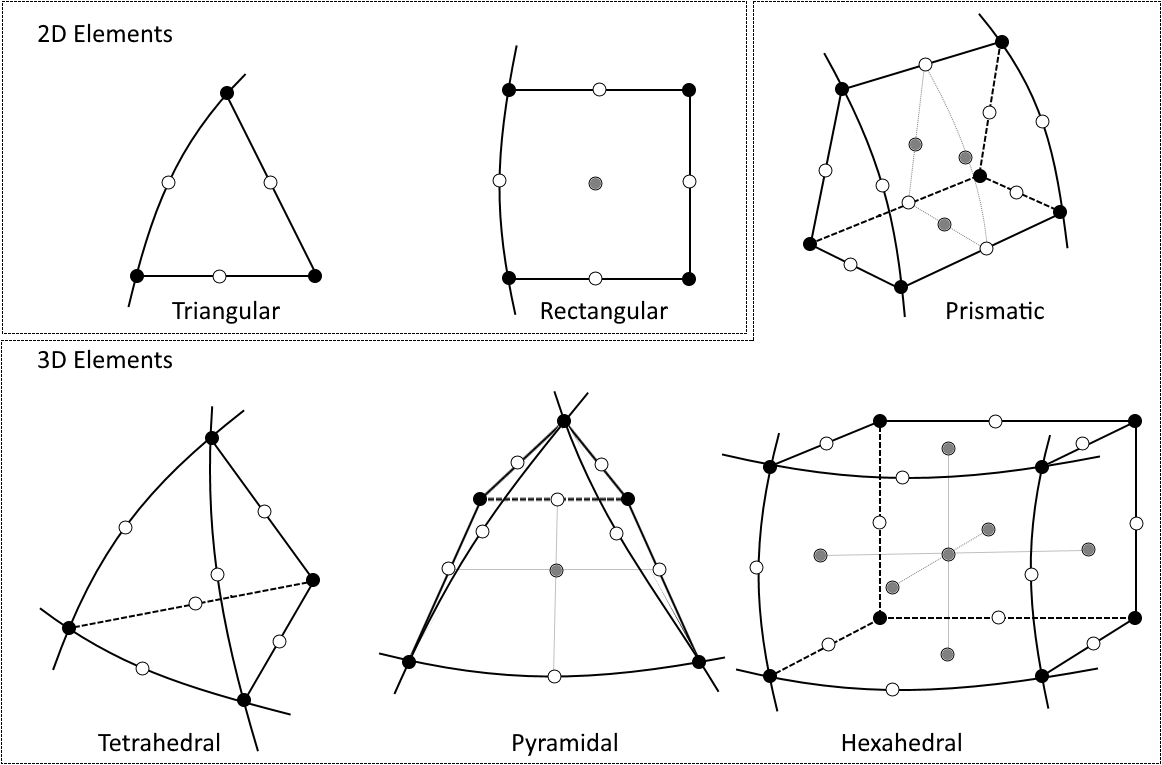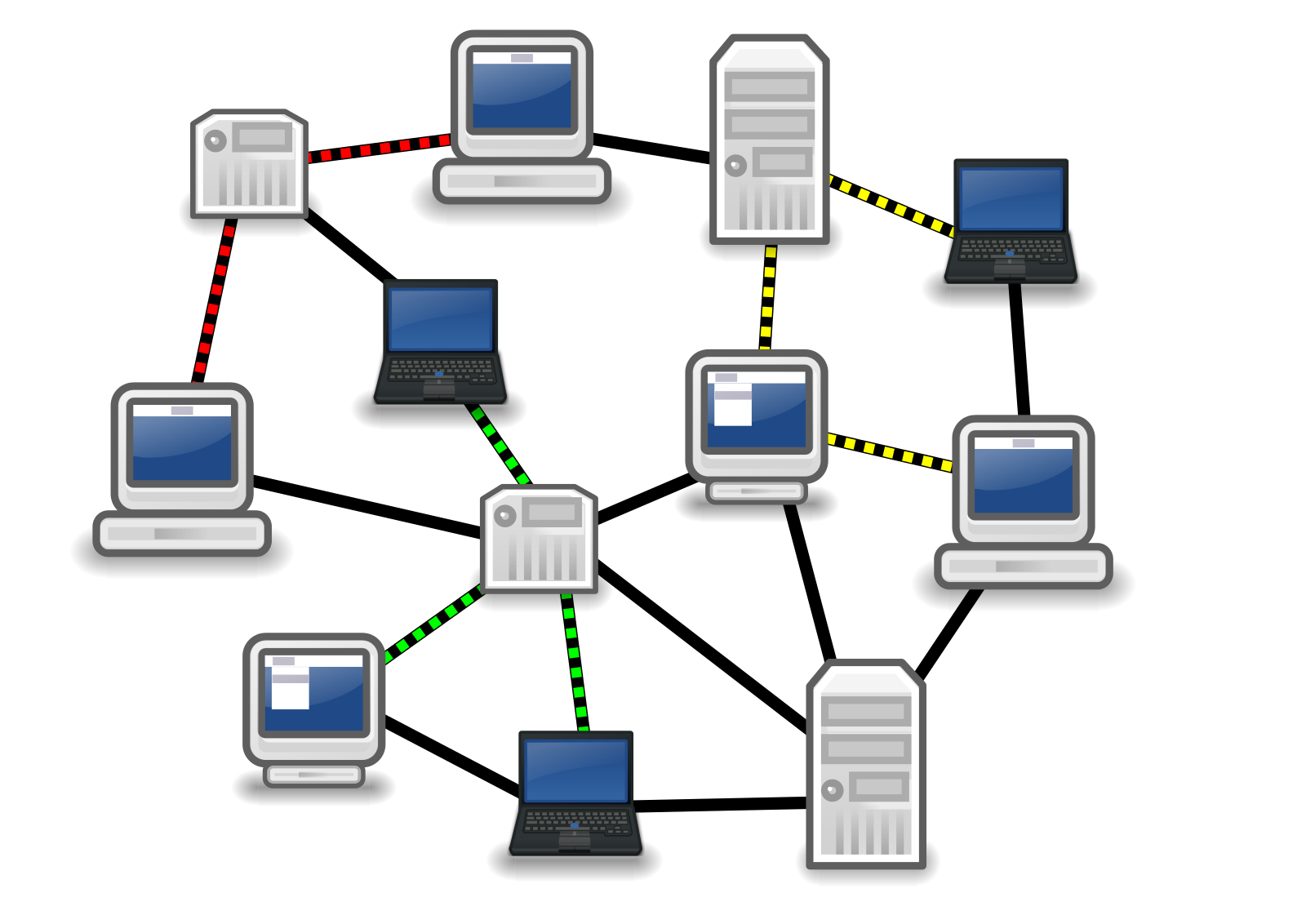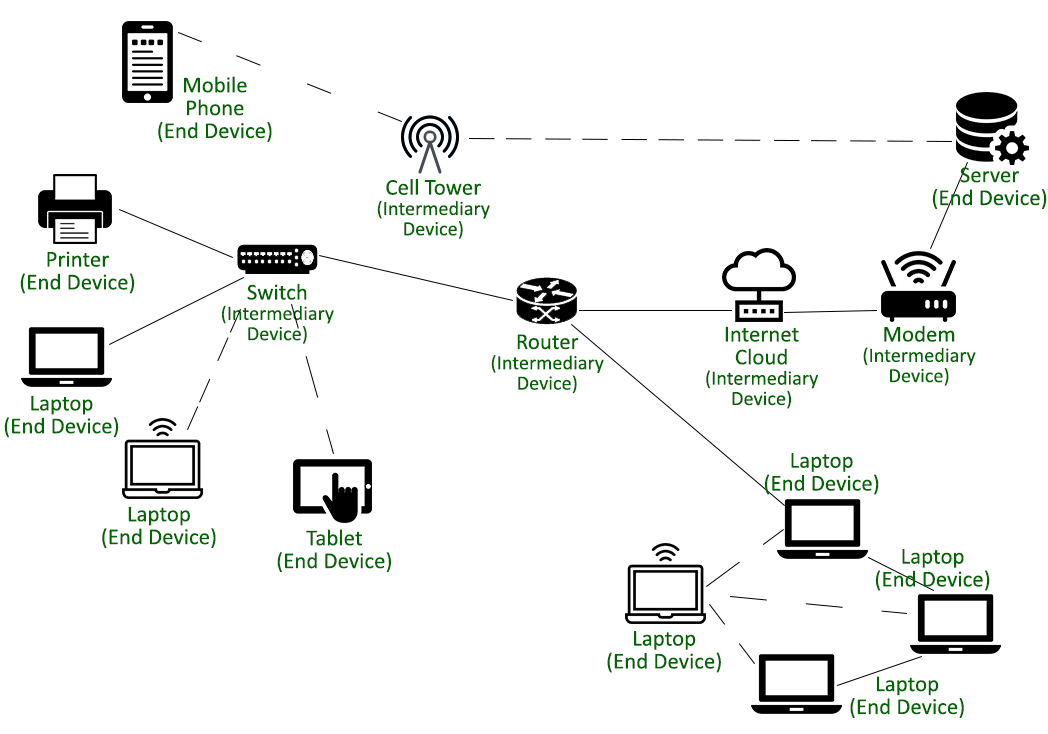Inspirating Info About What Is A Node And Its Function

Stem Characteristics And Functions
Unraveling the Mystery
1. Nodes Demystified
Ever wondered what keeps the digital world spinning? Chances are, nodes are playing a big part. Think of nodes as the fundamental building blocks of a vast network, whether its the internet, a computer system, or even a social network. At its most basic, a node is a connection point, a place where information or data can be transmitted, received, or processed. They're like the little worker bees of the tech world, buzzing around and getting things done.
Now, don't go picturing little robots scurrying about (although that would be pretty cool). In the digital realm, a node can be a computer, a server, a printer, a smartphone, or any other device capable of communicating over a network. Each one has a unique address that allows other nodes to find it and exchange information. Its kind of like having your own postal code in the digital universe.
The type of node can vary dramatically depending on the network it belongs to. In a computer network, a node might be a router directing traffic, a workstation crunching numbers, or a storage device holding all your precious cat photos. In a social network, you and your profile are nodes, connected to other nodes (your friends, family, and that weird aunt who keeps posting conspiracy theories).
Essentially, without nodes, theres no network. Its like trying to build a house without bricks. They are the core components enabling communication and data sharing. Picture a bustling city — nodes are the buildings, roads, and intersections that allow everyone and everything to connect and interact. Makes you appreciate your Wi-Fi a little more, doesn't it?

The Many Hats of a Node
2. What Do Nodes Actually Do?
Okay, so we know what a node is. But what does it do all day? Well, that depends on the type of network and the specific role the node plays. But generally speaking, nodes are responsible for a few key functions. One of the most important is routing data. Think of it like this: you send an email. That email doesn't magically teleport to its destination. Instead, it travels through a series of nodes, each one examining the destination address and deciding where to send it next.
Another critical function is processing data. Some nodes, especially powerful servers, are designed to crunch numbers, run applications, and perform complex calculations. These nodes are the workhorses of the network, handling the heavy lifting and ensuring everything runs smoothly. They're the brains behind the operation, making sure that cat video streams in glorious HD.
Nodes also play a vital role in storing data. From massive data centers housing terabytes of information to your humble smartphone storing your contacts and photos, nodes are the repositories of all the digital stuff we create and consume. They're the digital librarians, carefully organizing and safeguarding our collective knowledge (and memes).
Lastly, nodes are essential for maintaining the network's integrity and security. They can monitor traffic, detect anomalies, and prevent unauthorized access. They're the digital security guards, protecting the network from cyber threats and ensuring that everything stays safe and sound. They make sure the bad guys don't crash the party.

Nodes in Different Networks
3. Node Variety Pack
Nodes aren't a one-size-fits-all kind of deal. They come in various shapes and sizes, each tailored to the specific needs of the network they're a part of. Let's take a quick look at how nodes function in a few different types of networks. In a computer network, like your home Wi-Fi network, nodes might include your computer, your smartphone, your printer, and your router. Each node communicates with the others, allowing you to share files, print documents, and browse the internet.
Blockchain networks, like Bitcoin, rely on nodes to maintain the integrity of the blockchain. Each node stores a copy of the blockchain and verifies transactions, ensuring that no one can cheat the system. These nodes are like the digital guardians of the decentralized ledger, keeping everything honest and transparent.
In distributed computing systems, nodes work together to solve complex problems. Each node performs a small part of the overall calculation, and the results are combined to produce the final answer. This is like a digital assembly line, where each node contributes to a larger task. Think of scientific simulations, weather forecasting, or even rendering special effects for movies. The power of many nodes working together is what makes these possible.
Even social networks are built on nodes. Your profile is a node, and your connections to other users are the links between those nodes. These connections allow you to share information, stay in touch with friends and family, and build communities. So, the next time you're scrolling through your feed, remember that you're participating in a vast network of interconnected nodes.

Why Nodes Matter
4. Node Appreciation Time
So, why should you care about nodes? Because they're essential to just about everything we do online. Without nodes, there would be no internet, no social media, no online shopping, and no streaming cat videos. They are the foundation upon which the digital world is built.
Understanding the role of nodes can help you appreciate the complexity and ingenuity of modern technology. It's easy to take the internet for granted, but behind the scenes, millions of nodes are working tirelessly to ensure that everything runs smoothly. They are the unsung heroes of the digital age, and they deserve our gratitude (or at least a passing thought of appreciation).
Furthermore, as networks become increasingly complex and decentralized, the importance of nodes will only continue to grow. From blockchain technology to the Internet of Things (IoT), nodes are playing an increasingly crucial role in shaping the future of technology. Think self-driving cars communicating with each other, smart homes adjusting to your needs, or decentralized marketplaces connecting buyers and sellers directly.
In conclusion, nodes are the fundamental building blocks of the digital world. They enable communication, data processing, storage, and security. By understanding what nodes are and how they function, you can gain a deeper appreciation for the technology that surrounds us. So next time you're online, take a moment to thank the nodes for their tireless work — they're the reason you can read this article!

Types Of Node Devices In A Computer Network End And
FAQ
5. All About Nodes - Q&A
Still a little fuzzy on the concept of nodes? Here are some frequently asked questions to help clear things up:
Q: Are nodes always physical devices?
A: Not necessarily! While a node can be a physical device like a computer or a server, it can also be a virtual entity, such as a virtual machine or a software process. The key is that it's a point of connection and communication within a network.
Q: What happens if a node fails?
A: The impact of a node failure depends on the network and the role the node plays. In some cases, the network can automatically reroute traffic around the failed node, minimizing disruption. In other cases, a node failure can cause service outages or data loss. That's why redundancy and backups are so important!
Q: Are nodes only used in technology?
A: While the term "node" is most commonly associated with technology, the concept of nodes can be applied to other fields as well. For example, in social sciences, individuals or groups can be considered nodes in a social network. The underlying principle is the same: nodes are points of connection and interaction within a system.
Q: How do I become a node? (Like, in a blockchain, not philosophically.)
A: Ah, a deep question! To become a node in many blockchain networks, you usually need to download the blockchain software and keep your computer running to validate transactions. Keep in mind this often requires a significant amount of processing power and storage space. But hey, you'd be contributing to the decentralized future!
